BBC micro:bit board#
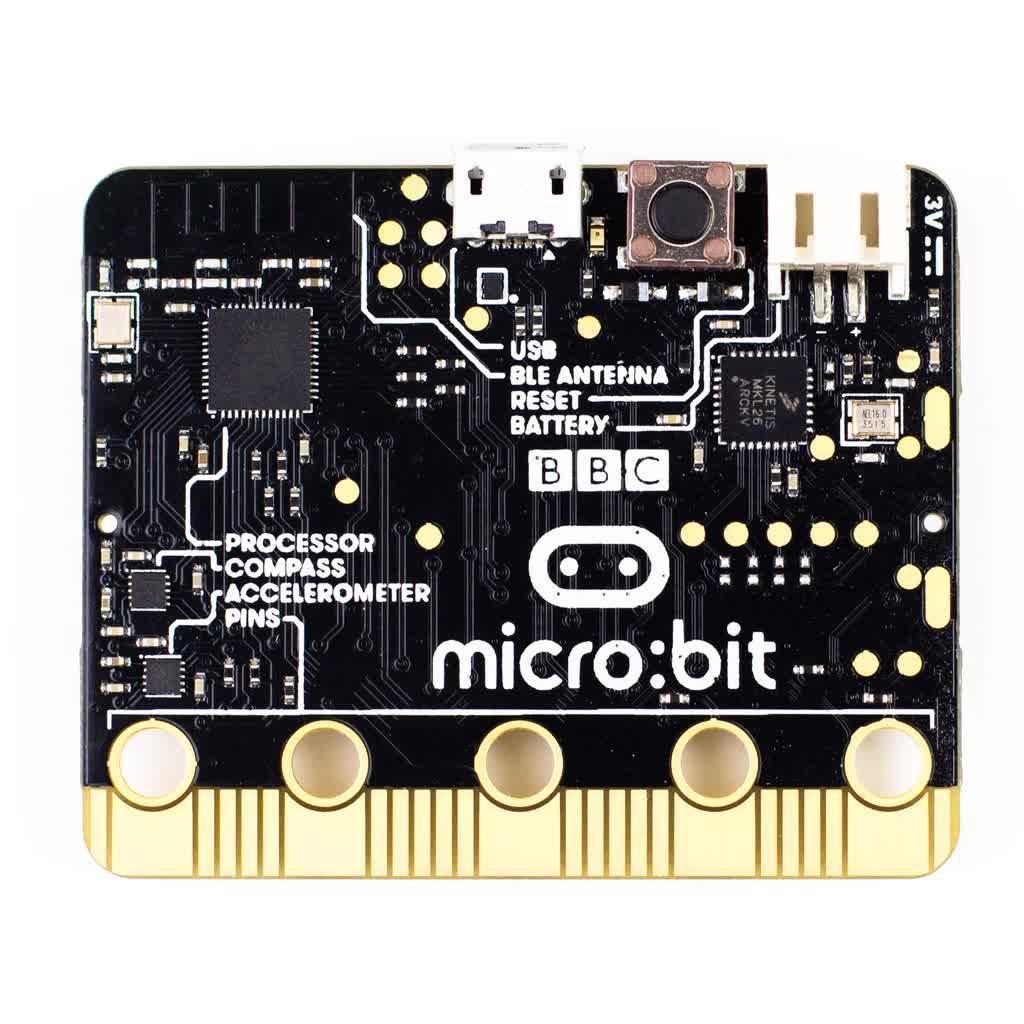 |
From the micro:bit page on Wikipedia:
page on Wikipedia:
 for use in computer education in the UK.
for use in computer education in the UK.
The device is described as half the size of a credit card and has an ARM Cortex-M0 processor, accelerometer and magnetometer sensors, Bluetooth and USB connectivity, a display consisting of 25 LEDs, two programmable buttons, and can be powered by either USB or an external battery pack. The device inputs and outputs are through five ring connectors that form part of a larger 25-pin edge connector.
processor, accelerometer and magnetometer sensors, Bluetooth and USB connectivity, a display consisting of 25 LEDs, two programmable buttons, and can be powered by either USB or an external battery pack. The device inputs and outputs are through five ring connectors that form part of a larger 25-pin edge connector.
The micro:bit can be programmed in Microsoft MakeCode (a graphical language), Python, and Scratch
(a graphical language), Python, and Scratch .
.
The micro:bit is available from many vendors, and it clearly makes sense to shop for the best value (and the best value based on currency). Some options:
- micro:bit
 £13.50 from Pimoroni
£13.50 from Pimoroni
- BBC micro:bit
 US$14.95 from Adafruit
US$14.95 from Adafruit
- BBC micro:bit Go Bundle
 US$17.50 (with USB cable, battery pack and 2x batteries) also from Adafruit
US$17.50 (with USB cable, battery pack and 2x batteries) also from Adafruit
- BBC Micro:Bit in Gift Box (Microbit)
 £11.75 from 4Tronix
£11.75 from 4Tronix
Available micro:bit Robots#
Generally, unless stated otherwise the micro:bit board is not included with the robot kits.
M.A.R.S. Rover Robot for Microbit or Pi Zero#
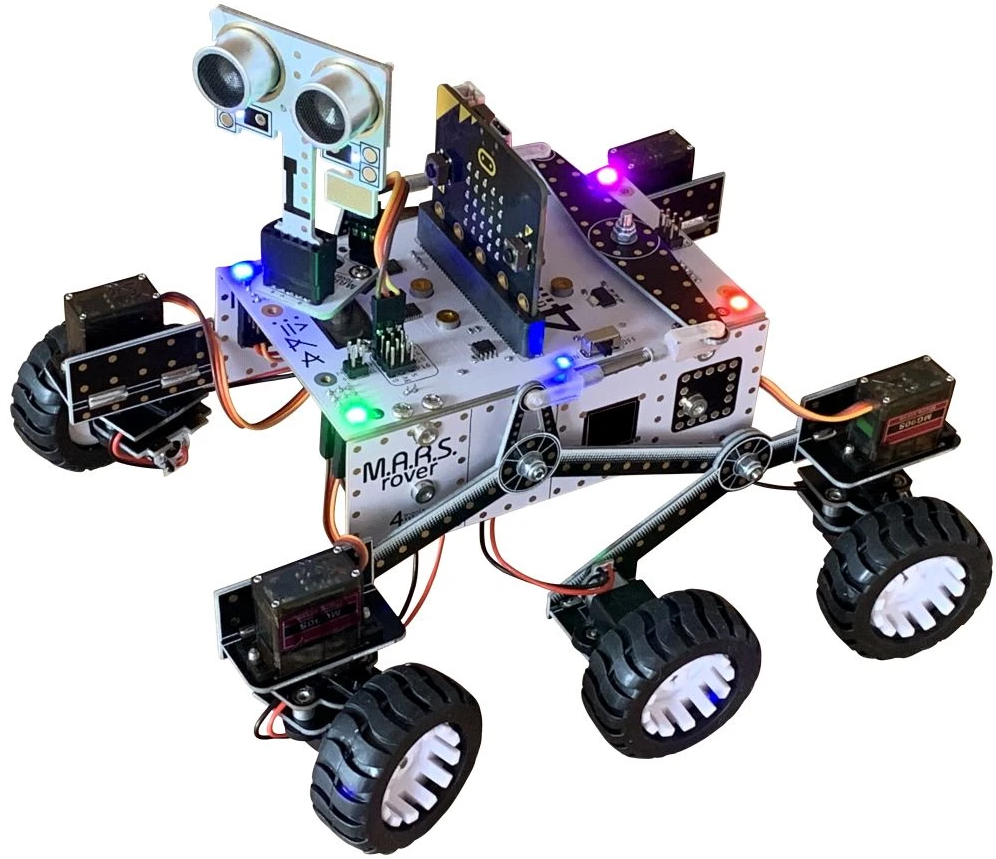 |
This is by far the most complicated micro:bit based robot available, and is certainly not an entry-level robot. This uses six micro metal gear motors and four servos.
It's included in the list here so you can see that a micro:bit robot need not be limited by any notion of the simplicity of its controller. You can purchase the rover for use with a Raspberry Pi Zero or a micro:bit (not included).
Waveshare Alphabot#
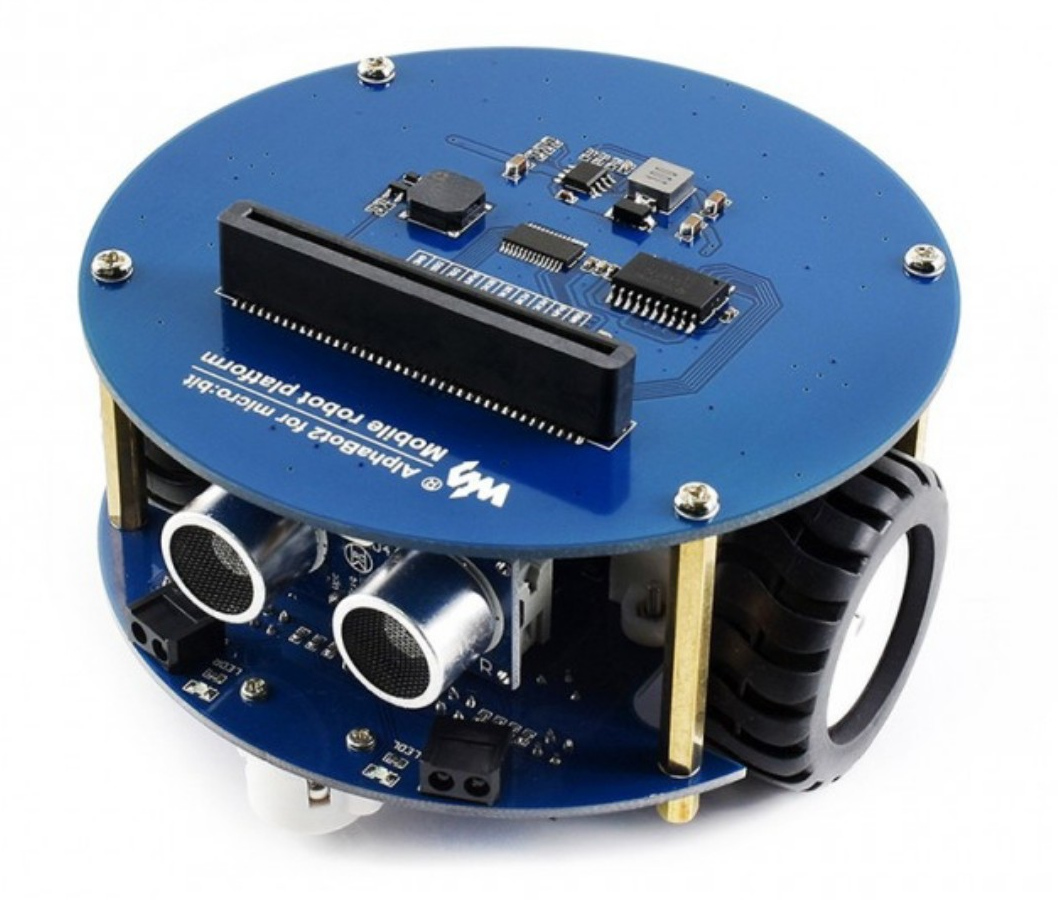 |
This robot is not as pretty as some of the others (no rainbow flashing LEDs) but is probably one of the more advanced, durable and better-designed of the micro:bit robots. It is also available for Arduino and Raspberry Pi.
See also: AlphaBot2 wiki page
micro:Maqueen Plus#
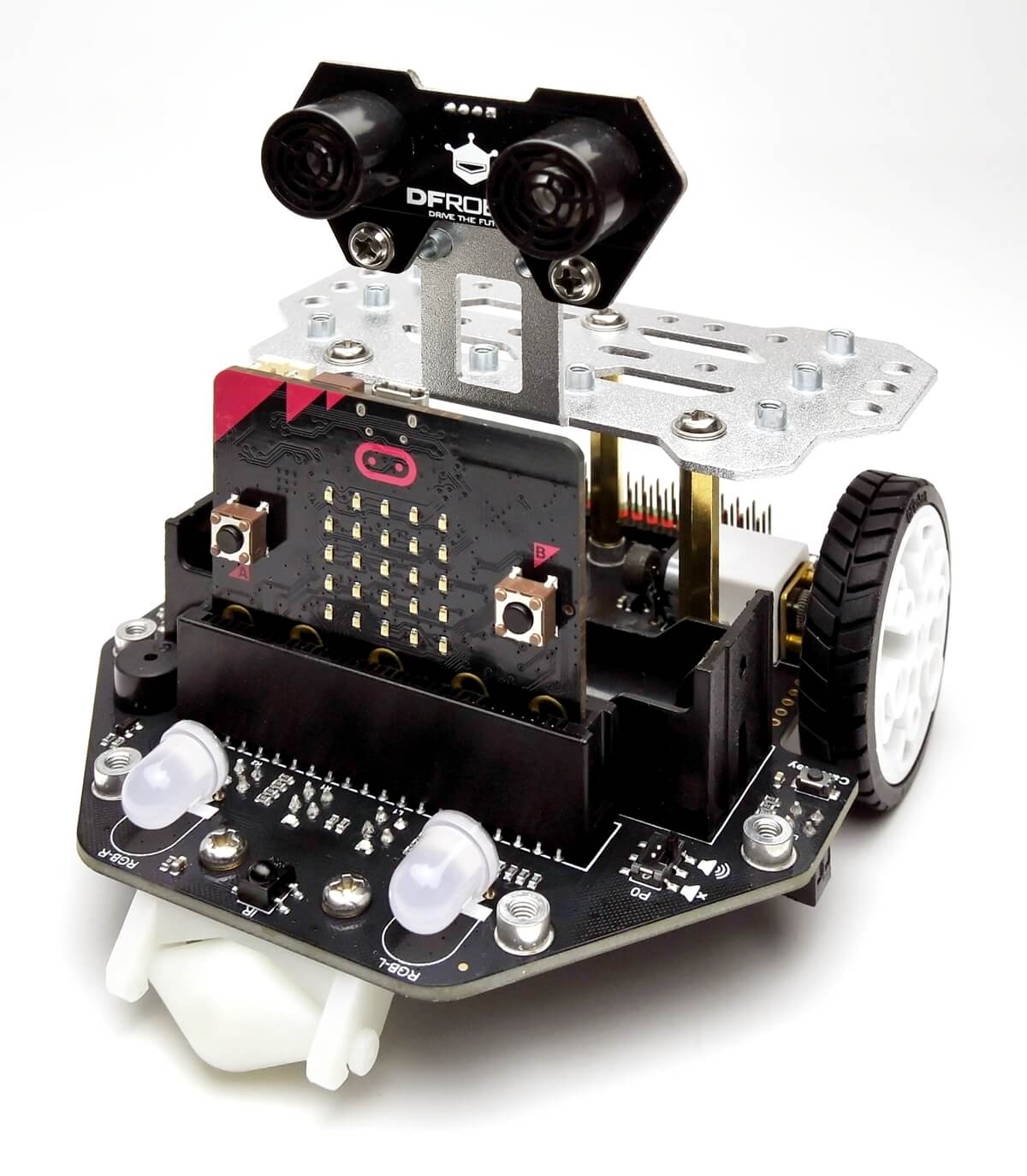 |
- micro: Maqueen Plus
 US$49.90, US$78.90 with "Mechanic" option
US$49.90, US$78.90 with "Mechanic" option
 which makes it an accessible AI robot teaching tool.
which makes it an accessible AI robot teaching tool.
In addition, micro:Maqueen Plus comes with a larger and more stable chassis, more built-in functions and more expansion ports, it is not only suitable for classroom teaching, but also can be suitable for after-school extended exercises and robot competitions.
There are also expansion kits available which add mechanical actuators (e.g., gripper, loader), a gamepad controller, and a HuskyLens (AI camera). As compared with the Lite version it also has a battery charging circuit (for a 2500mAh LiPo battery), motor encoders with a PID controller, large RGB LEDs up front, a lot more IO ports and even a line tracking map.
micro:Maqueen Lite#
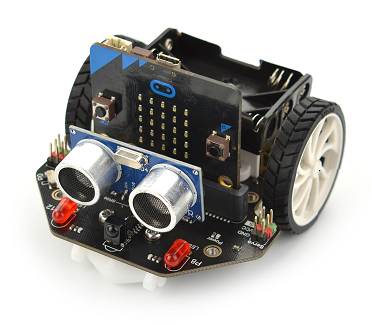 |
- micro: Maqueen Lite-micro:bit Educational Programming Robot Platform
 US$24.90, with micro:bit based Gamepad (and 2x micro:bit): US$82.50
US$24.90, with micro:bit based Gamepad (and 2x micro:bit): US$82.50
- Introducing Micro:Maqueen micro:bit Robot Platform
 (YouTube) promotional video from DFRobot
(YouTube) promotional video from DFRobot
- Smartphone controlled Robot Micro:bit
 - (Youtube) promotional video showing robot programmed via iPhone application
- (Youtube) promotional video showing robot programmed via iPhone application
- Best DIY Robot kit for beginners - Micro:Bit
 (YouTube) amateur video demonstrating this robot
(YouTube) amateur video demonstrating this robot
Maqueen is a graphical programming robot for STEM education, which inherits playability and simple operation of micro:bit. The Maqueen Lite is the smaller sibling to the Maqueen Plus.
Maqueen is accessible to the Mind+ Programming platform now. Mind+ is a Scratch3.0-based graphical programming platform from DFRobot, supporting python, Arduino and other programming platforms. At present, Mind+ has been applied to all kinds of sensors, modules and related educational products.
Bit:Bot#
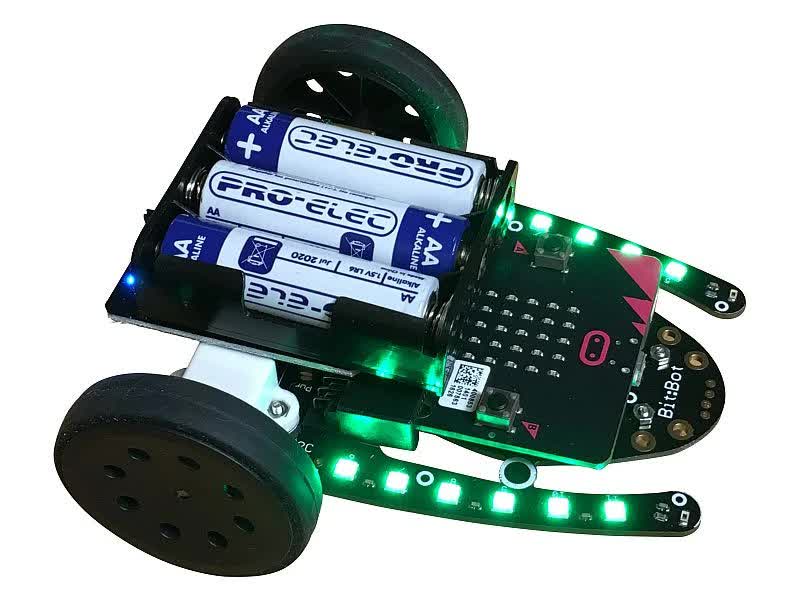 |
- 4Tronix Bit:Bot
 £39.90
£39.90
It appears the Bit:Bot may be replaced by the Bit:Bot XL, as the former no longer appears on the 4Tronix website (though it is still available from some vendors).
Bit:Bot XL#
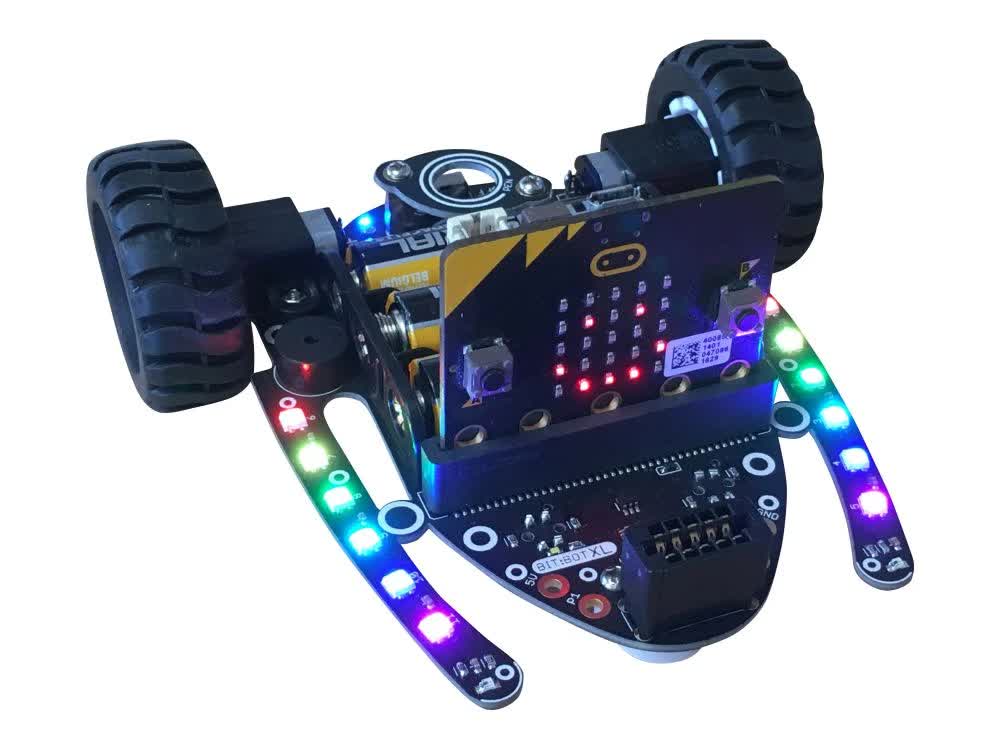 |
MiniBit#
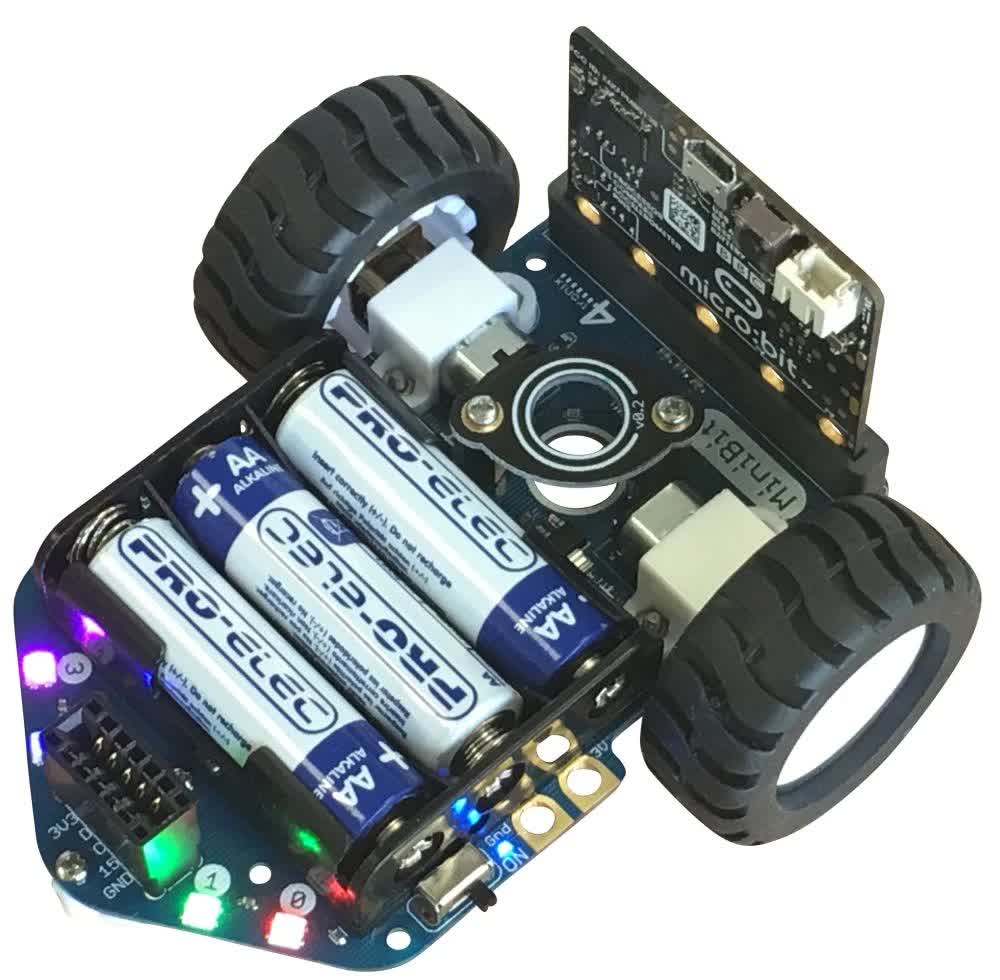 |
The Minibit is the younger sibling of the popular and well-loved Bit:Bot. It comes ready-built (wheels need pushing on).
A Makecode extension is available. Blocks available for driving the motors, LEDs and optional ultrasonic sensor and line follower module as well as the other plugin breakouts.
:MOVE Mini#
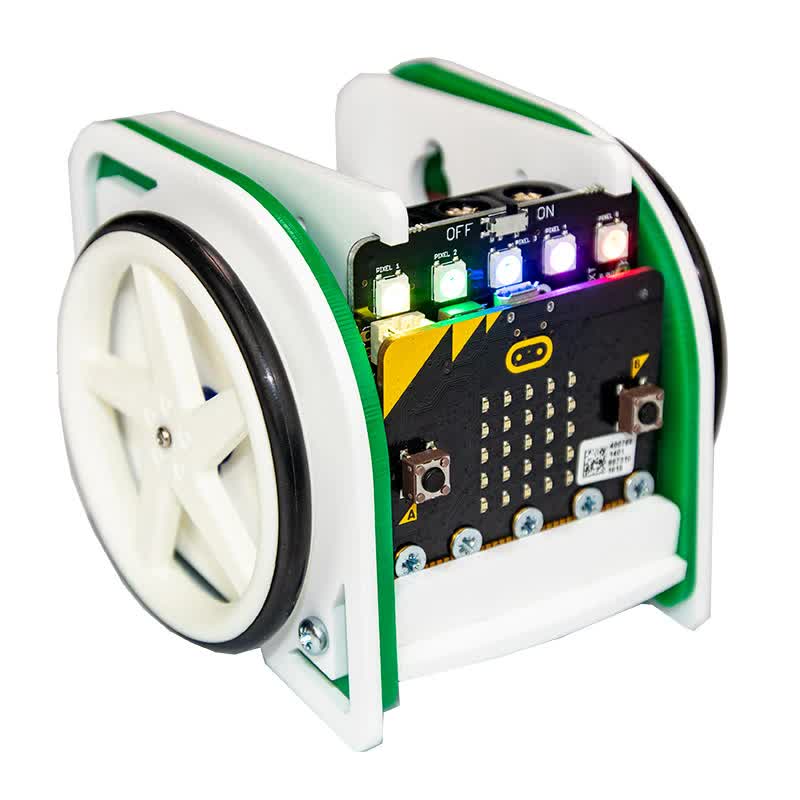 |
- :MOVE mini MK2 buggy kit
 £27.60
£27.60
Robot:bit MK3#
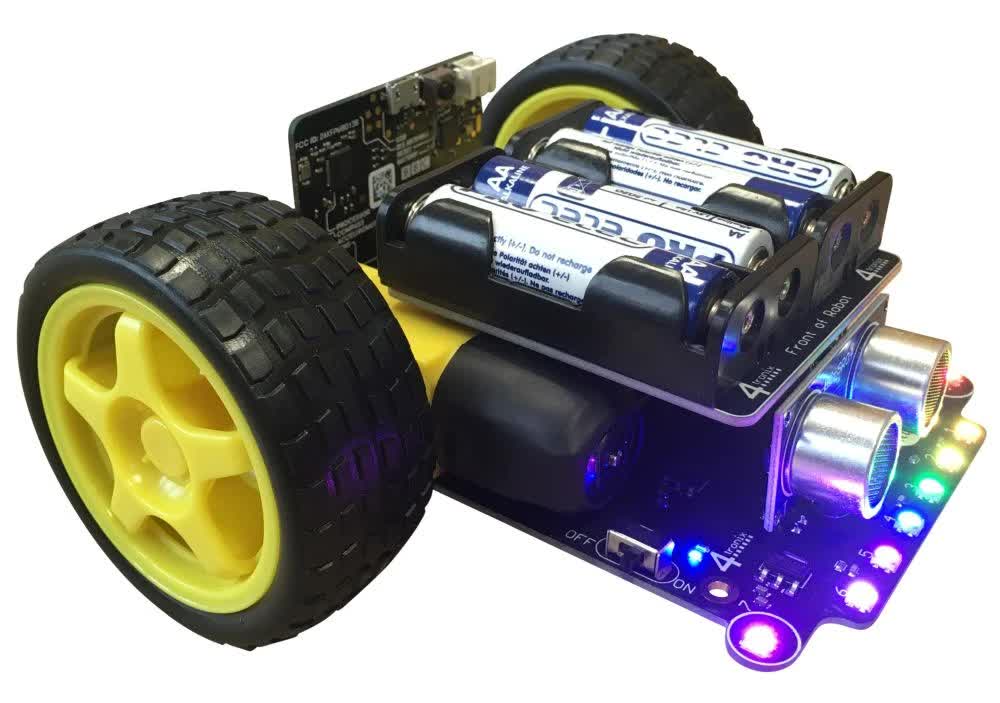 |
Version 1.3 of this popular kit now uses a removable ultrasonic sensor, that uses the same connector as used on the Minibit and BitBot XL. This allows the use of alternative addons, such as the new BitFace, 5x5 FireLed Matrix and OLED.
Adafruit CRICKET for micro:bit#
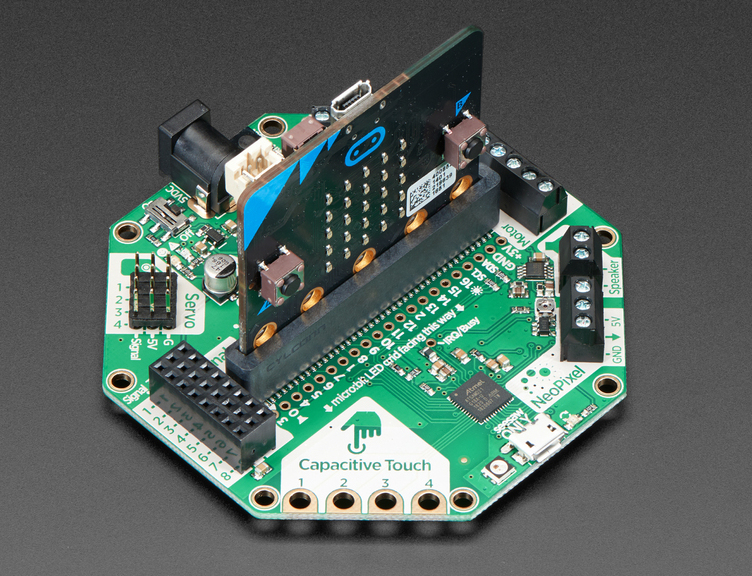 |
- Adafruit CRICKIT for micro:bit
 US$29.95
US$29.95
Plug your micro:bit into the 40 pin edge connector and start controlling motors, servos, solenoids. You also get signal pins, capacitive touch sensors, a NeoPixel driver and amplified speaker output. It complements & extends micro:bit so you can still use all the goodies on the micro:bit, but now you have a robotics playground as well.
This is similar to the Adafruit Crickit used on the KC01 robot (which uses a Raspberry Pi rather than a micro:bit).
Related Products#
Kitronik ZIP Halo HD for micro:bit#
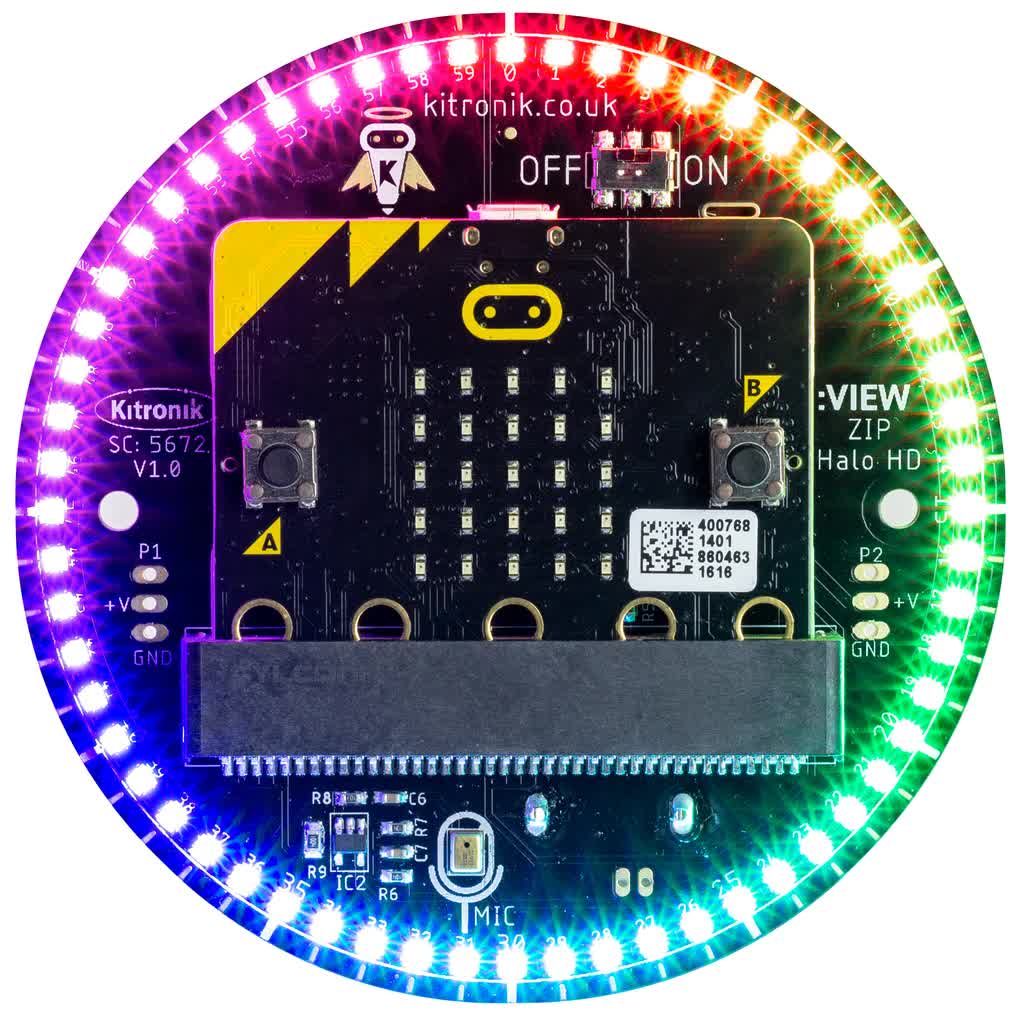 |
Ultrasonic Sensor Module#
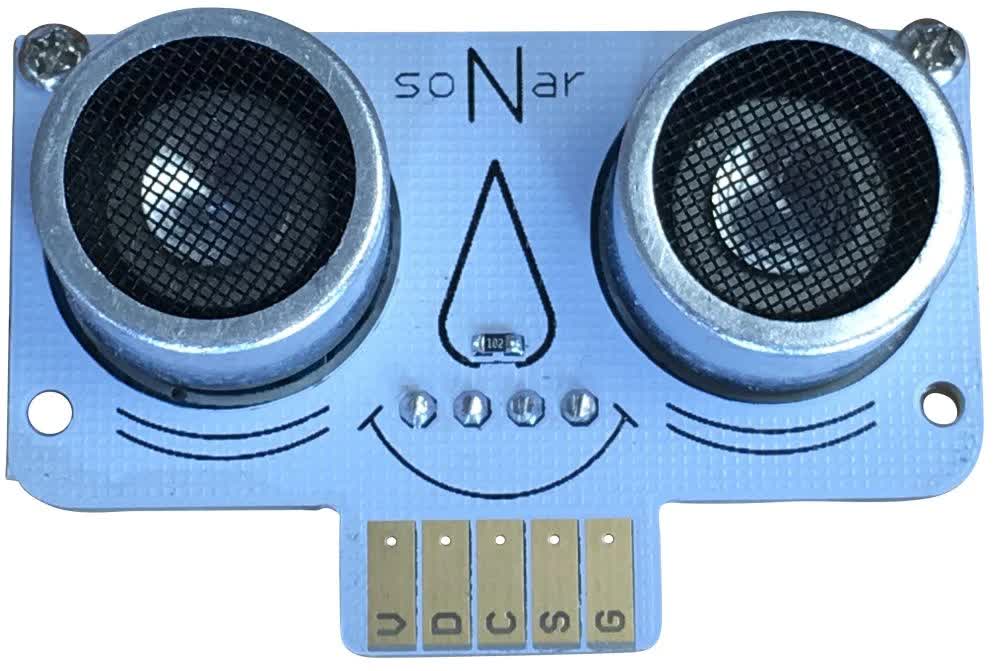 |
This breakout is a simple and robust way to add ultrasonic distance sensing to your robot. Supported on BitBot XL, Pi2Go Mk2, Pi-Bug (v1.1 and later), Minibit and other 4tronix robots released from July 2019 onwards (including the Robobit Mk3, v1.3 onwards).
Available in standard and tall versions. The Tall version is intended for the BitBot XL with a Talon attachment. We recommend using the standard version for all other use cases.
BitFace Robot Face Breakout#
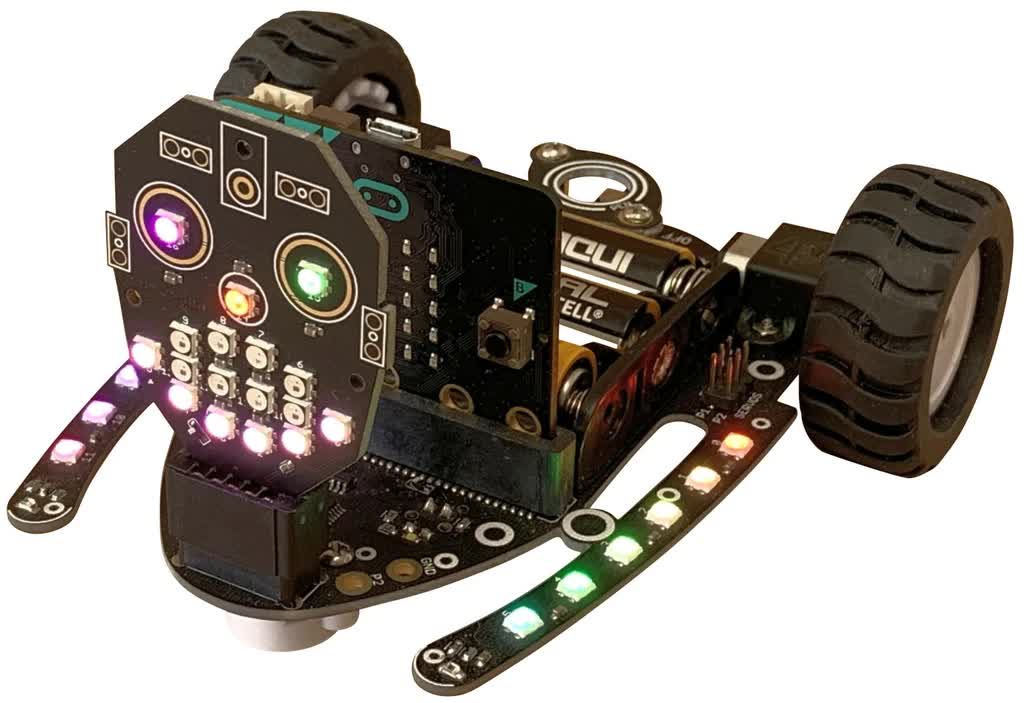 |
(Note that you can't use a BitFace and an Ultrasonic sensor at the same time, as they both plugin into the same socket.)